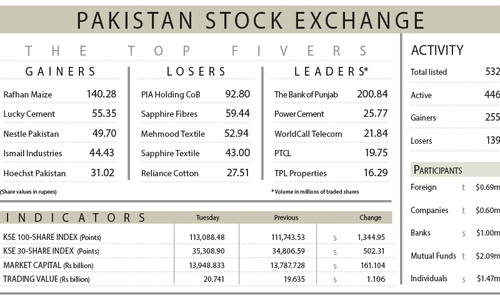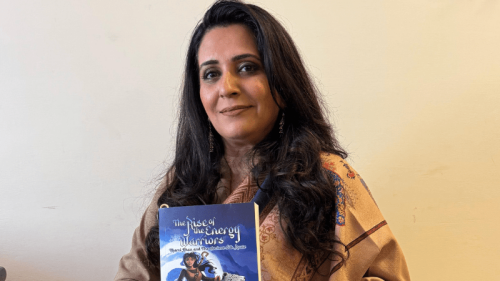ONE of the most flawed logic of the neo-liberal globalisation paradigm of the last three decades has been the privileging of trade over industry, and finance over production. It should have been the other way round. Industry precedes trade; if there is no production, there is no trade.
Financialisation of production has put a premium on speculative profits, often made out of fictitious money or credit, rather than where the emphasis should be on production itself. Ponzi schemes (fraudulent investment operations that pay returns to investors out of the money paid by subsequent investors rather than from profit) of the kind run by the $50 billion collapsed empire of Bernard Madoff duped millions into believing that they were putting their investments into the real economy, whereas they were only putting these into a deep black hole.
Even reputable banks, mostly in the western world, were fooled. As for trade, the prevailing neo-liberal dogma that puts it over industry is the second Achilles’ heel of the global system, and is indeed linked to the first one. In fact, trading in money (money markets, Ponzi schemes, currency, arbitage, hedge futures trading, financial intermediation) constitutes almost 98 per cent of all financial transactions; only two per cent or less actually finance trade in real goods. This is the topsy-turvy world in which we live.
This is not to underestimate the importance of either finance or trade. What is produced must be financed and traded. Finance is a means to production, but only one of at least three other ingredients labour power, natural resources and entrepreneurial skills.
In the present global system of production, banks and entrepreneurs are inordinately privileged over labour and natural resources (a CEO of a big multinational can earn a salary of over a million dollars a month whereas a worker gets a tiny fraction of it, especially if he or she (especially, she) is located in the countries of the South). That fundamentally explains why rich countries become richer and poor countries stay poor.
Trade is important too. After goods are produced, they must be consumed. Of course, not all that is produced is necessarily traded; subsistence farmers in much of the South, for example, consume what they produce without going through the market.
Nonetheless, markets are important for distribution of goods produced, and for realising the value contained in the goods so that the production cycle begins again. However, the present global trading system is heavily loaded against the countries of the South on account of both historical and structural reasons.
The natural resources of the South are seriously undervalued in the global market. If you factor in the real value of the labour power of the workers of the South, and add the environmental cost of exploitation of the South’s resources, the countries in the South should be getting at least four or five times more value than what they presently receive. This is the second fundamental reason why rich countries further enrich themselves at the cost of the poor countries.
A combination of factors of production is heavily weighted in favour of the suppliers of capital and patented technology. And there is very little of what is called “the transfer of technology”. A study carried out by the UNCTAD in 2007 on the Least Developed Countries (LDCs) found that most LDCS have opened up their economies to global trade and are highly integrated in the global economy, but they are not climbing the economic and technological ladder.
The report showed that the LDCs continue to import high value machinery and equipment which are paid out of low value exports in the production chain and along decline in the terms of trade. A study of 155 firms in Bangladesh, for example, showed that there was no development of technological capacity in agro-processing, textiles, garments and pharmaceuticals. The study found that foreign direct investment (FDls) have not helped LDCs much.
The problem is not lack of opening up to foreign investors, but rather it is the quality of integration of transnational corporations (TNCs) into host countries’ economies. Most FDIs concentrated on mineral extraction in enclaves with little spillover into the domestic economy.
The UNCTAD study put this all down to “economic liberalisation without learning”, global integration without innovation. This resulted in the increasing marginalisation of 767 million people in the LDCs. The LDCs are locked into low value-added commodity production and low skill manufacturing. This is in sharp contrast to the East Asian countries such as Japan, Korea and Taiwan which encouraged technological learning during their early phase of industrialisation.
There are at least two lessons to draw from history and the current phase of capitalist globalisation. One is that the developing countries must have policy space in order to design their economic roadmap. This is what is seriously compromised in the dogmatic pursuit of globalisation. Market fundamentalism has replaced common sense. The second is to underscore the centrality of knowledge, technological learning and innovation for development. Knowledge is the key to global production and competition.
The trend of economic globalisation is increasingly towards the development of intellectual rather than physical assets. It is here that most developing countries (and not only the LDCs) are still hostage to the monopolisation of knowledge. The knowledge divide between the rich and poor nations has increased, especially over the last three decades of capitalist globalisation. The current intellectual property (IP) regimes lock out patented technologies from the reach of the developing economies. .
Within the WTO framework, the Trade Related Investment Measures (TRIMS) discourage local content requirements thus killing effective industrial policy and learning, which is the basis for industrialisation.
The Trade Related Intellectual Property Rights (TRIPS) involve very high transaction costs in complex procedural requirements in implantation and enforcement that the poorest countries of the South cannot afford. Furthermore, the developed countries drive hard bargains against the poor countries in the free trade agreements (FTAs) with them. For example, the EU has sought to include patenting for biotechnology inventions and plant varieties and legal protection of databases as part of intellectual property (IP) rights, which go far beyond the requirements of WTO compatibility.
Putting production above trade and finance is an imperative for development. But the road is paved with deep potholes and along the way there are fire breathing monsters. Who said development is a linear, struggle free process? (Edited and abridged)
Courtesy: South Bulletin, Geneva















































Dear visitor, the comments section is undergoing an overhaul and will return soon.